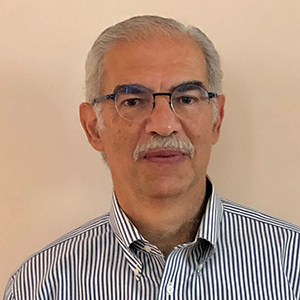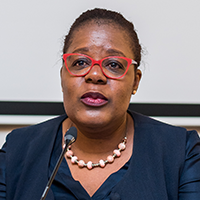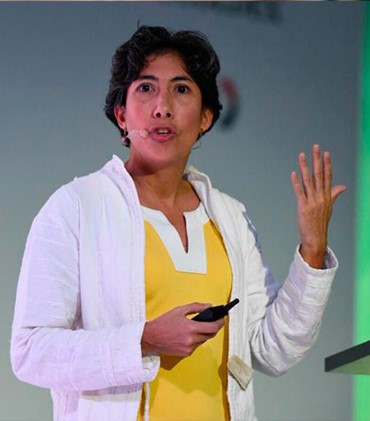Sharanjit Leyl | Moderator
Sharanjit is an experienced broadcaster with more than 20 years of experience covering international business, finance and politics. She's anchored Asia Business Report and Newsday from the BBC's Singapore studio for sixteen years. Sharanjit has anchored several BBC World News programmes in London, filed reports for radio on the BBC World Service and written for BBC news online. She’s reported for domestic BBC programmes such as Breakfast, the One and Six ’clock news and regularly anchors live on location for on breaking stories in the region.
A Singaporean native, she's presented and produced documentaries on BBC World News including the hour long ‘Singapore at 50’ and ‘Secrets of Singapore’, which featured interviews from former leaders and pioneers who helped make it one of the 20th century's economic success stories.
 Santiago Levy | Presenter
Santiago Levy | Presenter
Santiago Levy is Nonresident Senior Fellow at The Brookings Institution and Senior Advisor with the United Nations Development Programme. Prior to that, he was Vice President for Sectors and Knowledge at the Inter-American Development Bank, General Director of Mexico’s Social Security Institute, deputy minister at Mexico’s Ministry of Finance, and President of Mexico’s Federal Competition Commission. In academia, he was president of the Latin American and Caribbean Economic Association, Associate Professor of Economics (tenured) and director of the Institute for Economic Development at Boston University. His current work focuses on the inter-phase between social policy and growth in Latin America and the challenges of socially inclusive growth.
 Enilde Sarmento | Presenter
Enilde Sarmento | Presenter
Enilde Sarmento has over 15 years of experience in economic governance and policy analysis with a focus on macroeconomics, macro-fiscal forecasting, Public Financial Management, tax policy and private sector development. With extensive experience in macroeconomic analysis and policy formulation from governmental and non-governmental organizations in Mozambique and other African countries, including leading the negotiations on the new IMF programme in Mozambique (ECF 2022-2024), she is knowledgeable in best contemporary international practice and in the practicalities of what developing countries can implement sustainably.
 Marcela Eslava | Presenter
Marcela Eslava | Presenter
Marcela Eslava is Professor and Dean of Economics at Universidad de Los Andes, Bogotá; a Fellow of the Econometric Society; and Vice-President 2022-2023 (President 2024-2025) of The Latin American and the Caribbean Economic Association (LACEA). Professor Eslava holds a PhD in Economics from the University of Maryland at College Park. Her current research interests revolve around the lack of inclusive growth in Latin America, with a focus on firm dynamics and productivity, as well as informality. Professor Eslava’s research has been published in leading academic journals. She has been involved in multiple initiatives, research projects and missions led by multilateral organizations and the Colombian government, to contribute to the understanding of the origins of the deficit of inclusive growth in the region and to devise solutions to it.
 José Antonio Ocampo | Presenter
José Antonio Ocampo | Presenter
José Antonio Ocampo has recently been appointed as Minister of Finance and Public Credit of the Republic of Colombia. He held previously positions as Professor at the School of International and Public Affairs, Co-Chair of the Initiative for Policy Dialogue and Member of the Committee on Global Thought at Columbia University. He teaches regularly at Universidad de los Andes and other Colombian universities.
He has also held numerous positions at the United Nations and in Colombia, including Chairman of the Committee for Development Policy of the United Nations Economic and Social Council, and Chairman of the Independent Commission for the Reform of International Corporate Taxation (ICRICT), United Nations Assistant Secretary-General for Economic and Social Affairs, Executive Secretary of the Economic Commission for Latin America and the Caribbean (ECLAC), and Minister of Treasury, Minister of Agriculture, Director of the National Planning Department of Colombia, and Co-Director of the Banco de la República (central bank of Colombia).
 Join the network
Join the network Santiago Levy | Presenter
Santiago Levy | Presenter Enilde Sarmento | Presenter
Enilde Sarmento | Presenter Marcela Eslava | Presenter
Marcela Eslava | Presenter José Antonio Ocampo | Presenter
José Antonio Ocampo | Presenter